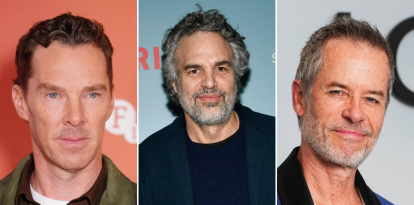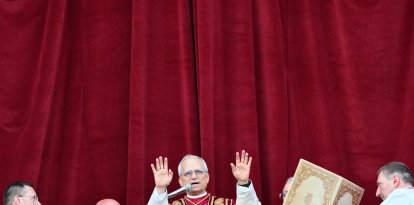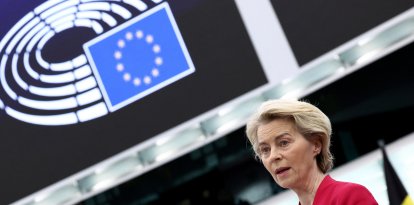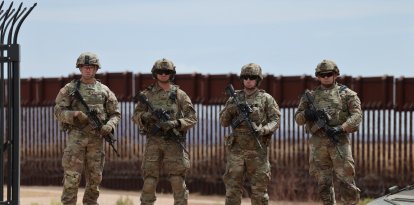How Qatar manages to clean up its image and influence the West
A cynical and clever communication strategy and multi-million dollar investments in various fields have constructed a smokescreen that the country's government has used to divert attention from its human rights violations and its support for Islamist terrorism.

El emir de Qatar Tamim bin Hamad al Thani (Cordon Press)
The Qatari regime, led by Emir Tamim bin Hamad Al Thani, who came to the throne in 2013 after the abdication of his father, Hamad bin Khalifa Al Thani, has managed not only to cleanse its image in the West, but also to maintain important influence.
There are several complaints against Qatari authorities related to their systematic violations of human rights, such as those linked to the persecution of critics of the government and homosexuals, the discriminatory treatment that women receive in the emirate, abuses against foreign workers, torture, unfair trials and so on.
Regarding its support for radical Islam, the country's government has been accused of providing support to terrorist organizations such as Hamas, ISIS and Al Qaeda.
Despite the accusations against it, the strategy implemented by the regime to clean up its image, which consists of cynical and clever communication tactics and enormous investments in various areas of the West, seems to work almost perfectly.
Qatar's use of sports to whitewash its image
Qatar hosted the 2022 FIFA World Cup. The controversial selection, which occurred in 2010, is considered the greatest corruption scandal in soccer history. The process by which the country, which has no soccer tradition, was awarded the event included a bribery plan involving different members of FIFA's Executive Committee.
After being named host, Qatar built impressive stadiums, spectacular resorts and museums, held music festivals for visitors, etc., to welcome tourists in the best way possible.
Critics believe that what Qatar did was nothing more than sportswashing. The term, first coined in 2015, is related to the use of international sports competitions by governments to whitewash their public image. That is, they use sports as a smokescreen to divert attention from the human rights violations committed by the authorities.
This is not the first time that sportswashing has been used to clean up the image of a government. It was also done in the FIFA World Cup held by fascist Italy in 1934, the Summer Olympic Games held by Nazi Germany in 1936 and the Winter Olympic Games organized by communist China, among other sporting events.
The organization of the 2022 World Cup by Qatar was not the only time that the country used sports to divert attention from its human rights violations. In 2010, the Qatar Foundation (QF), a non-profit organization dedicated to education and science, sealed a $220 million agreement with FC Barcelona to sponsor the Spanish club, The Journal of Democracy reported in an article published before the World Cup. Six months later, the newspaper added, the Qatar Investment Authority (QIA), the sovereign fund of Qatar, paid up to $58,000,000 to take over French soccer club Paris Saint-Germain. Just a few months later, Qatari media outlet Al Jazeera shelled out $130,000,000 for the rights to broadcast French soccer league matches, meaning stars such as Lionel Messi, Neymar and Kylian Mbappé would wear jerseys advertising Qatar Airways.
Qatar fully understands the soccer value chain, which is why it is dedicated to hosting and broadcasting tournaments, as well as sponsoring and owning teams.
The country uses state-owned companies, such as Qatar Sports Investments (QSI), sports channel beIN Sports and nonprofits closely linked to the government, such as Q.F., to reach multimillion-dollar agreements with franchises and federations in Europe, North America and Oceania, incorporating Qatari brands and benefactors along the way.
In this way, Qatar has managed not only to obtain great financial benefits, but also to cleanse its image. In fact, in 2019, former English soccer star David Beckham visited the country and praised the “large” and “safe” stadiums and hotels he toured. The country used him to draw attention away from reports related to the thousands of foreign workers who died in the construction of stadiums and the exploitation of immigrants. Among other things, reports indicated that employees had their passports confiscated and were housed in overcrowded and unsanitary living conditions. Reports also indicated that workers who complained about their treatment suffered reprisals and even arrests by Qatari authorities.
Despite all the money spent on cleaning up Qatar's image, several famous artists refused to participate in the 2022 World Cup due to the human rights violations committed in that country. Some of the musicians who refused to perform during the World Cup were Shakira, Rod Stewart, Dua Lipa, J. Balvin, Robbie Williams, the Black Eyed Peas and Nicki Minaj, among others.
Qatar's sportswashing campaign is not limited to soccer. It has also invested large amounts of money in motorsports. Since 2021, the country has played host to the Formula 1 Qatar Grand Prix, which has not only generated criticism from human rights organizations such as Amnesty International, but also from within the world of racing due to its poor quality standards.
In October 2023, journalist Alberto Marcos stated in an article published in El Español after the last race that took place in Qatar, that “the country tries to whiten its image in the world by hosting this type of events ... but what was left in the air after the race was a long list of reviews due to the extreme conditions to which the drivers were exposed.” He added: “Far from showing the power of this country as an organizer of sporting events of the highest level, the balance of the Qatar Grand Prix was anything but positive. The athletes were on the asphalt rolling at [185 miles] per hour in conditions that put their lives in real danger, so the debate about the convenience of forcing this type of race was back on the table. Of course the image of the country did not come out reinforced.”
In the middle of last year, QIA also bought 5% of the parent company of the NBA's Washington Wizards. The firm also has ownership stake in the Washington Capitals of the NHL and the Washington Mystics of the WNBA.
Al Jazeera, Qatar's propaganda arm
In order to cleanse its image worldwide and shape minds to advance its Islamist agenda, the Qatari government needs a propaganda arm disguised as a media outlet, and that role is fulfilled by Al Jazeera.
Al Jazeera was founded by the Qatari royal family in 1996. Although it was born as a radio station with limited reach, it had great aspirations.
The outlet's path to success arguably accelerated during the wars in Afghanistan and Iraq at the beginning of the 21st century, when it managed to cover both conflicts with a large press deployment.
Following its success between 2002 and 2006, the Qatari government invested a fortune to expand its staff and launch an English channel (Al Jazeera English) to reach a greater number of viewers internationally.
The gigantic investment was able to be made, in part, thanks to the fact that the country was going through a major economic boom due to the high prices of oil and gas and the financial investments made by state companies, which also allowed it to launch a sports network called beIN Sports and a channel in the United States (Al Jazeera America).
However, in 2011, the economic boom in Qatar was no longer what it used to be, and Al Jazeera's audience and reputation began to fall, since during the coverage of the Arab uprisings and armed conflicts in Syria, Libya and Yemen, the interests of the Qatari government became evident, even for Arab viewers. In fact, Al Jazeera America closed its doors less than three years after its launch.
The difficulties Al Jazeera found in expanding throughout the world led the Qatari government, former Emir Hamad bin Khalifa Al Thani and his son Tamim bin Hamad Al Thani, successor to the throne in 2013, to face ambitious policies to be influential, both within the Arab and Muslim world and in the West.
The channel's journalists must work taking into account the objectives of the country's leadership, meaning that the station must function as a kind of hidden press department for the Qatari authorities. At the same time, Al Jazeera tries to maintain its relationship with the West while keeping its ties with radical Islamist organizations. This is reflected in the type of guests who are interviewed in Al Jazeera in Arabic, where members of terrorist organizations such as Hezbollah and Hamas, among others, are given a platform, while journalists speak more frequently with Western representatives, including Americans and Israelis, on other sides of the company.
The coverage carried out by Al Jazeera in some conflicts in the Middle East reflected that the news network informs and misinforms according to the interests of the Qatari government, especially when it comes to the conflict between Israel and the Palestinians, where it has shown a marked anti-Israel stance.
Al Jazeera was also accused of encouraging demonstrations in Tahrir Square in Cairo, Egypt, during the 2011 revolution and having ties to the radical Islamic organization the Muslim Brotherhood.
In an article published in The Free Press, journalist Eli Lake further explained the way Qatar attempts to control intellectual discourse in the West to demonize Israel.
“One of Qatar’s soft power aims is to advance the ideology of the Muslim Brotherhood, the Islamist movement that spawned Hamas and the ruling party in Turkey,” Lake said. He added: “According to a 2021 analysis from the Washington Institute for Near East Policy, Qatar funds the International Union of Muslim Scholars, the clerical arm of the Brotherhood. In 2017 Bahrain, Egypt, Saudi Arabia, and the United Arab Emirates imposed a trade and travel embargo on Qatar in response to its support of the Muslim Brotherhood. Doha’s embrace of political Islam is one factor that distinguishes it from its Gulf Arab neighbors who turned on the movement after the Arab Spring in 2010 and 2011."
Lake cited Charles Asher Small, from the Institute for the Study of Global Policy and Antisemitism, who said that a consequence of Qatar's support for the Muslim Brotherhood, in its soft-power operation abroad, was to make Israel appear toxic in Western political and intellectual discourse.
“Their soft power is aimed at demonizing Israel as well as promoting anti-Western and anti-democratic discourse to weaken the West. Antisemitism is the fuel to light that fire,” Small said.
Qatar has not only disguised its press department (Al Jazeera) as a news network, but also disguised Islamic terrorists as innocent journalists.
Throughout the war between Israel and Hamas, the Jewish state has accused various Al Jazeera journalists of being part of the ranks of the Palestinian terrorist organization and of having participated in the Oct. 7 massacre.
Qatar's other major investments
The ties between Qatar and Europe go through various areas, but gas constitutes the most important part of the link, since the emirate has one of the largest natural gas reserves in the world. This is why it has important clients, such as Germany and the United Kingdom, in Europe, especially since the beginning of the war between Russia and Ukraine, as Moscow reduced its gas shipments to countries that support Kiev.
However, in order to expand its influence, ties between Qatar and the West are not only limited to gas or sports.
In the United States, Qatar has spent large sums of money on several universities and has 10% of Empire State Realty Trust Inc., the company that owns the Empire State Building in New York, among other million-dollar investments in the real estate sector there.
Regarding the United Kingdom, among some of the important investments made by Qatar, the emirate owns 20% of Heathrow airport in London, while Qatar Airways owns 25% of International Consolidated Airlines Group S.A., the company that owns British Airways. It should also be noted that the Qatari government is one of the 12 largest property owners in the United Kingdom.
In Russia, the Qatar owns 18.93% of Rosneft, the largest oil producer in that country.
In Germany, it is estimated that Qatar's investments exceed $24 billion, with some of the most relevant being those made in Volkswagen, Deutsche Bank and Siemens.
Qatar, the United States ally that finances international terrorism
In an article published in Newsweek, journalist Josh Hammer claimed that Qatar is, along with Iran, one of the main financiers of Hamas. It is also the physical home of the political leaders of the terrorist organization, where they live in luxury. The Qatari regime has provided help to other Islamist groups and once even offered banking services for the ISIS branch responsible for the brutal on-camera beheading of American journalist Steven Sotloff in 2014.
Hammer added that Qatar manages to evade international sanctions thanks to a multifaceted strategy, centered on the U.S. Al Udeid Air Base, which is located on Qatari soil, as well as strategic investments in the West and very sophisticated information manipulation.
Hammer argued that Qatar allowing the United States to maintain Al Udeid Air Base gives Americans the mistaken feeling that the emirate is on their side, reaching the point that even the Biden administration described the Arab country as an important ally outside of NATO. Hammer stressed that U.S. government even mistakenly believes that Qatar is a legitimate mediator to free the hostages in Gaza, which he says is the equivalent of recruiting an arsonist to put out a fire.
The author explained that Qatar's communications operation is multi-level, complex and, unfortunately, quite effective. It has successfully fooled many Western elites in both North America and Europe. He added that regardless of all the money the emirate invests in public relations or how much Washington benefits from the Al Udeid, the emirate remains one of the main sponsors of Islamism and jihadism in the world.
Currently, the U.S. State Department only includes Cuba, North Korea, Iran and Syria on the list of countries sponsoring terrorism. Hammer called to add Qatar to that list and no longer consider it an ally.

























